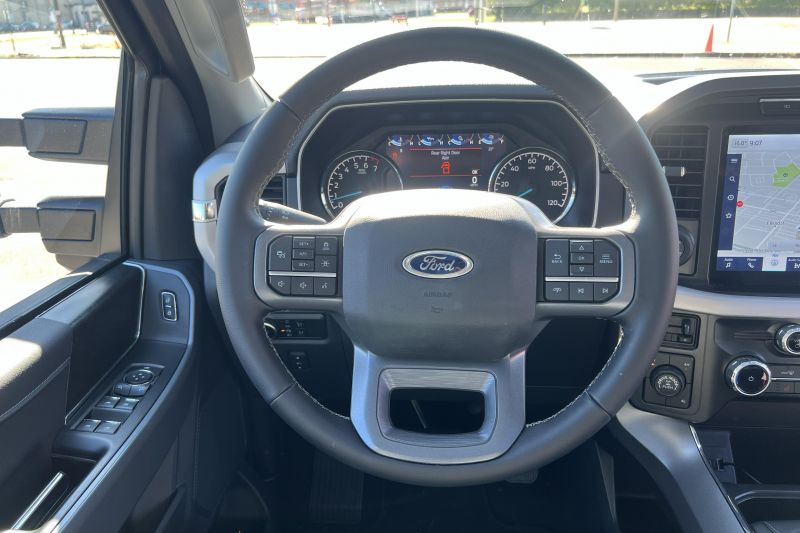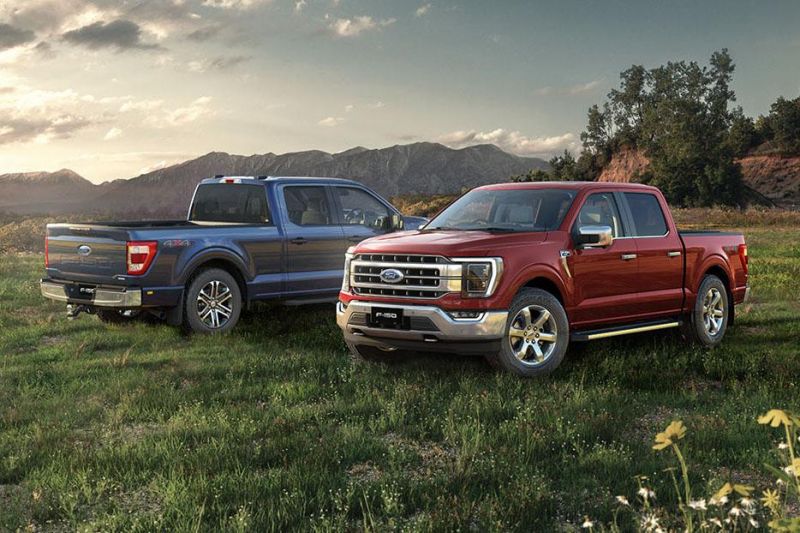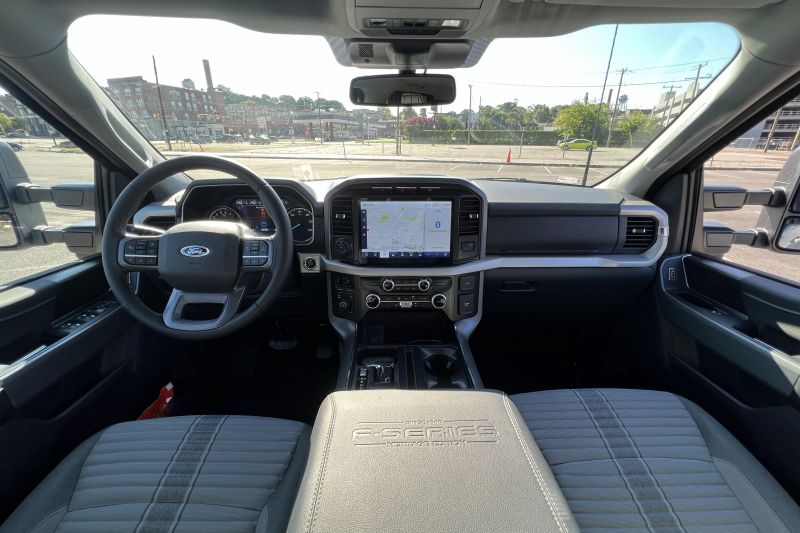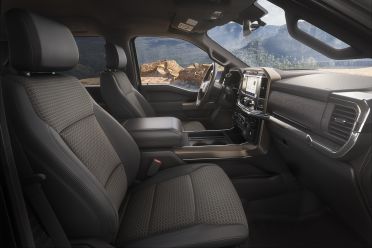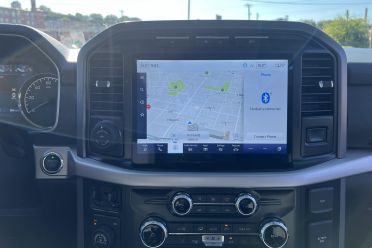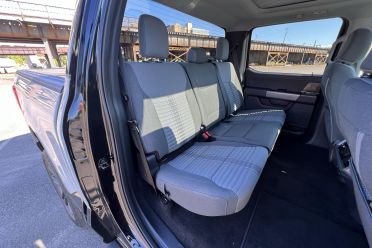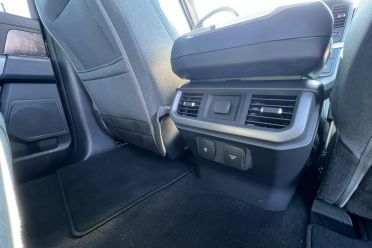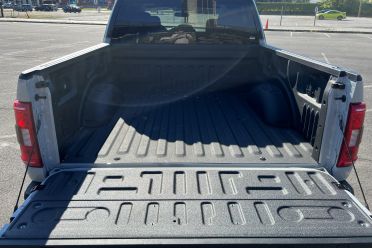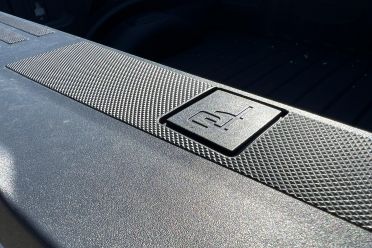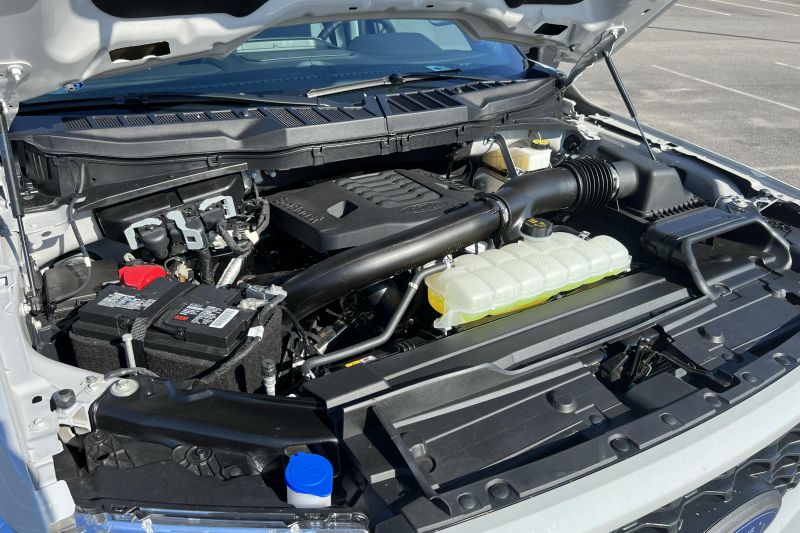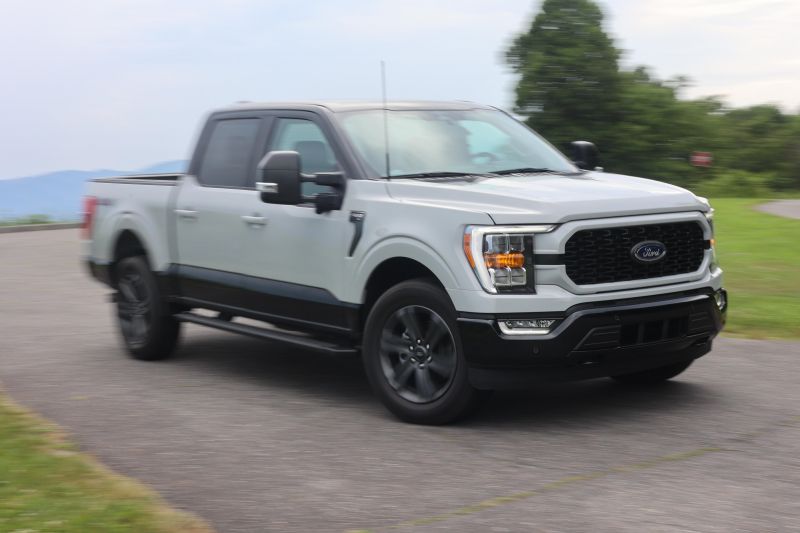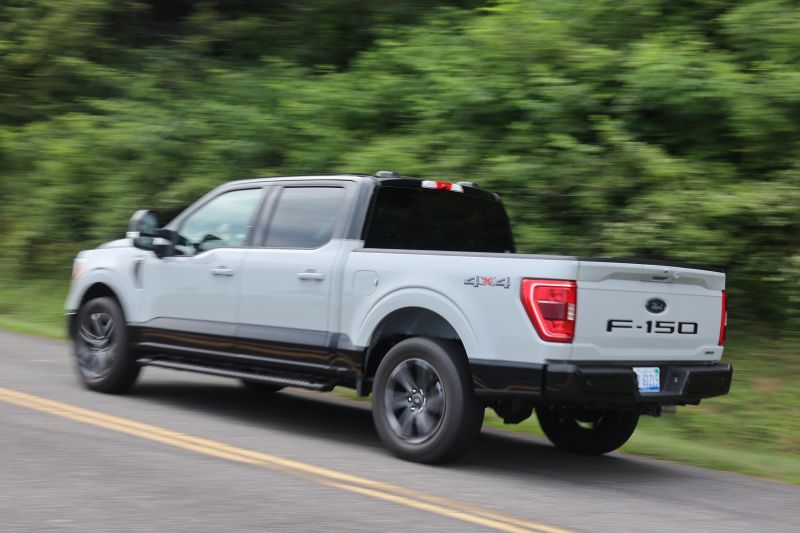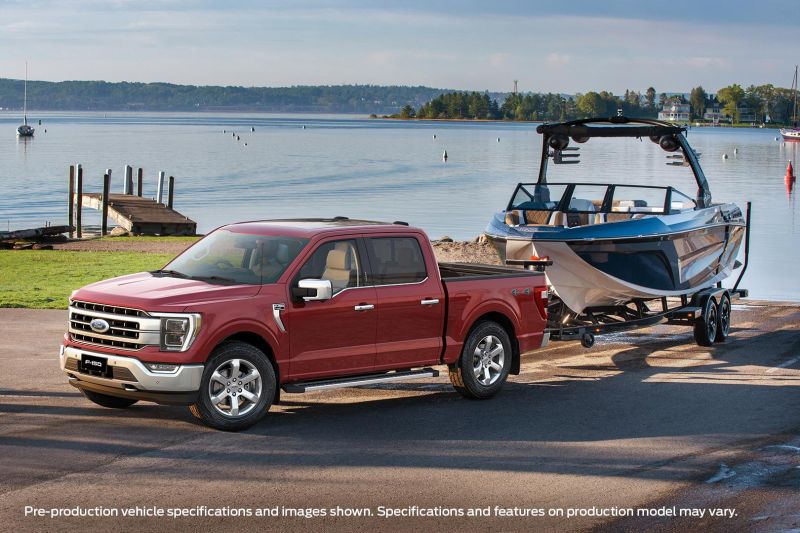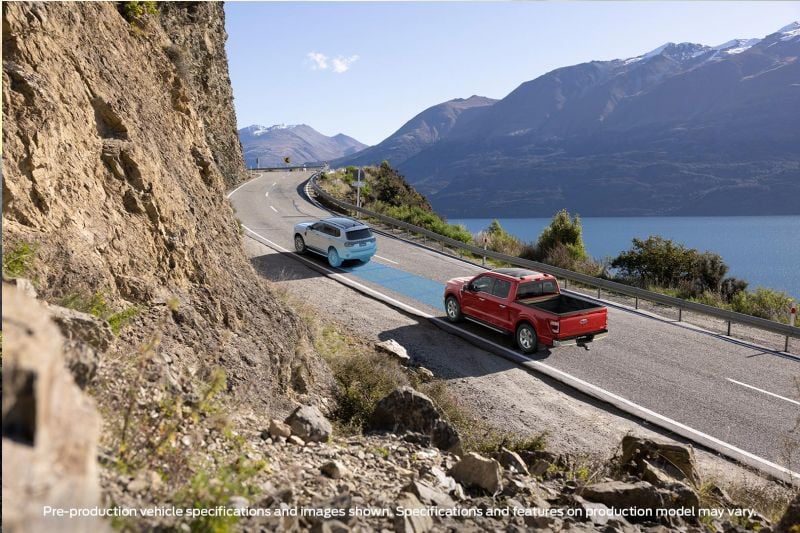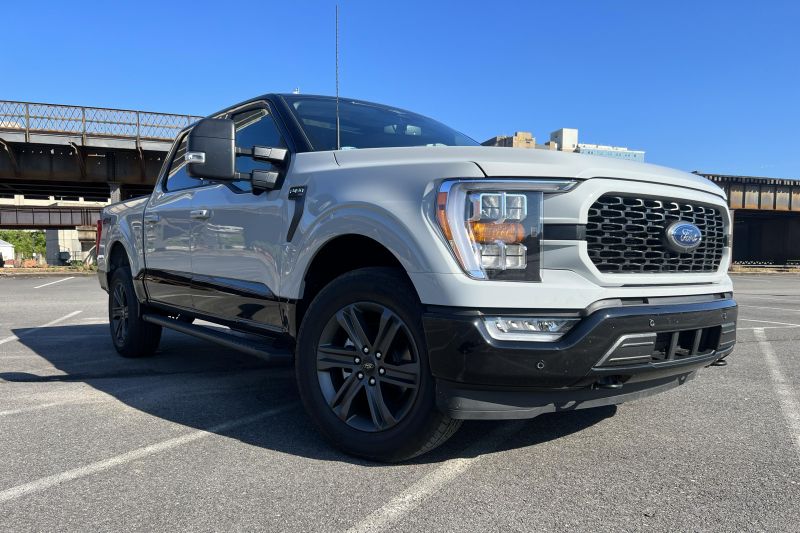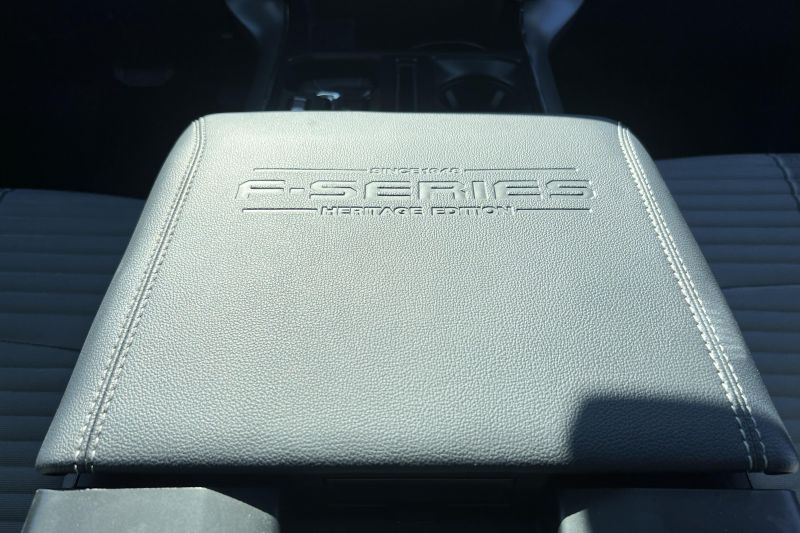The Ford F-150 is almost in Australia.
The first batch of cars has touched down on local soil, and they’ll start hitting showrooms in the coming months.
It’s been a long time coming. The F-150 is an establishment in the USA, where it’s consistently the best-selling new car, but it hasn’t been sold in Australia since 1993.
Now, it’s back. Imported from the USA, remanufactured in right-hand drive by RMA Manufacturing outside Melbourne, and sold through Ford dealers with a full factory warranty, the F-150 arrives on the heels of runaway sales success from the RAM 1500 and, more recently, the Chevrolet Silverado 1500.
Just two trim levels will be offered in Australia from launch, starting with the workmanlike XLT and extending to the less workmanlike – but still mid-range by American standards – Lariat.
We hopped behind the wheel of the XLT-based Heritage Edition in the USA to see how it stacks up against its strong-selling rivals.
How much does the Ford F-150 cost?
The F-150 range will start just north of $100,000 before on-road costs for the workman-spec XLT, and will extend to $140,945 for the long wheelbase Lariat.
At the bottom end, the XLT SWB will take on the Ram 1500 Express ($98,950) – which is a previous-generation car aimed at tradies or budget-conscious towers in Australia.
It’s being phased out locally, which will make the 1500 Laramie Crew Cab ($127,900) the cheapest Ram. At the top end, the F-150 Lariat is priced in line with the new 1500 Laramie Sport Crew Cab ($136,950).
Over at Chevrolet, the Silverado 1500 LTZ Premium sits between both models, with a sticker price of $128,000 before on-roads.
2023 Ford F-150 pricing:
- Ford F-150 XLT SWB: $106,950
- Ford F-150 XLT LWB: $107,945
- Ford F-150 Lariat SWB: $139,950
- Ford F-150 Lariat LWB: $140,945
All prices exclude on-road costs
What is the Ford F-150 like on the inside?
It’s no surprise the F-150 is spacious inside. You sit in a different postcode to your passenger, with a generously padded armrest and oversized centre console separating you, and the view over the road ahead is commanding.
There’s more to life than one-upmanship, but it counts for something in the pickup truck world. And the F-150 makes a Ranger, HiLux, or Triton look and feel tiny.
The driving position is excellent. There’s plenty of space for tall drivers, and the front passengers sit in generously padded armchairs that are perfect for long road trips. The cloth trim of our Heritage Edition looked and felt high-quality; the XLT in Australia will have a more basic cloth finish, and the Lariat will feature a leather finish.
Where the Ranger features a vertically oriented screen, the F-150 has a 12-inch display that dominates the dashboard. It’s running a version of the SYNC software that features across the Ford line-up.
It responds quickly to inputs, and has wireless Apple CarPlay and Android Auto to go with the factory satellite navigation.
Australian cars will feature an 8.0-inch display in XLT guise, and the 12-inch unit we tested in Lariat trim.
Facing the driver is a simple pair of analogue dials, flanking an 8.0-inch trip computer display.
There is so much storage in the F-150. There are six places to put drinks up front alone, along with a spacious bin beneath the dashboard, an iPad-sized slot between the seats, and a massive underarm bin.
Our tester also had an option that allowed you to fold down the gear selector, flip out the underarm storage bin, and create a flat workspace. It’s a simple touch, but one that is genuinely useful if you’re using your truck as a mobile office.
The rear seats are palatial, as is the case in the Ram 1500 and Chevrolet Silverado 1500. We fit four full-sized men in the car without any complaints, and at six-seven I managed to sit comfortably behind a tall driver.
That’s not something you can do with a Ranger.
Air vents feature back there along with a USB-A and USB-C port, and a proper power outlet. The lack of dedicated temperature and fan controls back there makes it harder for rear passengers to really tailor things like they’d be able to in the equivalent four-wheel drive.
The rear doors open nice and wide, making it simple to load in kids or child seats… provided you’re not thrown off by the step up. Even with a side step, this is a pretty damn tall beast to step into.
The F-150 will feature three top-tether points in the rear in Australia. If you’re a parent, it’s worth trying to load a child seat into your truck before buying – we’ll have to test the big Ford, but the fact the bulkhead sits directly behind the seats in utes makes it difficult to install a bulky Maxi Cosi.
The SWB model has a tray measuring 1676mm long and a 3683mm wheelbase, while the LWB has a 1981mm long tray to go with its longer 3988mm wheelbase.
What’s under the bonnet?
The entire 2023 Ford F-150 range is powered by a 3.5-litre ‘EcoBoost’ twin-turbo V6 petrol engine producing 298kW of power and 678Nm of torque in Australia.
This is mated to a 10-speed automatic transmission with drive sent through a four-wheel drive system.
The XLT variants have a part-time four-wheel drive system with 2H, 4H, and 4L modes, whereas the Lariat variants have a full-time four-wheel drive system with a 4A mode. Braked towing capacity is 4500kg.
Claimed fuel economy on the American EPA cycle is 20MPG, equivalent to 11.8 litres per 100km. We saw 18.5 MPG (12.7 litres per 100km) on a road trip from North Carolina to Washington DC, with plenty of stops to see sights, film content, and eat American food.
In other words, it’s not a perfect representation of how owners will use their cars.
How does the Ford F-150 drive?
The Ram 1500 and Chevrolet Silverado 1500 are defined by their V8 engines. The F-150 takes a different approach.
It fires quietly and settles into a silent idle, without any real theatrics – which is a pretty apt metaphor for how it goes about its business in general.
With 10 closely-stacked gears and 678Nm of torque on tap, you rarely need to work it hard in day-to-day driving. We didn’t hitch up a trailer, but we did spend lots of time on the highway with four burly adults on board.
A version of the same 10-speed transmission is used in the Chevrolet Silverado, where it does a good job of fading into the background. It’s a similar story here; rather than feeling the need to try every gear, all the time.
It does a decent job hanging onto lower gears when you put your foot down and want to get a move on, but when you just breathe on the accelerator it will sometimes awkwardly shift down one, two, three gears in search of more torque when it isn’t required.
Like the Ranger, the F-150 does have a dedicated Tow/Haul mode that will force the transmission to hold gears longer.
Wind and road noise are kept nicely at bay at between 100km/h and 130km/h on the American interstate, and the suspension does a good job keeping passengers isolated from big bumps at speed.
Much like the new Ram 1500, it feels more like an oversized family four-wheel drive than a commercial vehicle at times. Smaller, high frequency bumps were noticeable in the back seats though – whether this was isolated to the conditions on our drive isn’t clear.
We’ll need to put the car through its paces on Australian roads to find out more.
As for life in the city? Most of our time was spent on the expanses of the Interstate, but there’s nothing to suggest the F-150 will be any harder to live with than its big American rivals.
Vision out of the large windows is solid, and the mirrors on our car were oversized units with both magnified and wide-angle glass in each housing. The camera tech makes it easy enough to park, and the light steering at low speeds does a good job masking the sheer size of this beast.
If you live in a Brunswick back alley this isn’t the car for you, but it’s not really meant to be anyway.
What do you get?
F-150 XLT highlights:
- 20-inch machined faced alloy wheels
- Two-bar style grille with chrome surround and black accents
- Chrome front and rear bumpers
- Black platform side steps
- Tailgate with flexible step and work surface
- Spray-in bedliner
- Boxlink cargo management locking cleats
- Underbody skid plates
- 8.0-inch digital instrument cluster
- 8.0-inch SYNC4 touchscreen infotainment system
- Satellite navigation
- 7-speaker sound system
- FordPass connect
- Dual-zone climate control
- Foldout office workspace
- Column-mounted gear selector
- Cloth upholstery
- 12-way power-adjustable driver’s seat
- 10-way power-adjustable front passenger’s seat
- Power-adjustable foot pedals
F-150 Lariat adds:
- Premium mesh insert grille with chrome surround
- Chrome mirror scalps, door handles, belt mouldings, tow hooks, and side steps
- LED headlights
- LED front fog lights
- LED tail lights
- Powered twin-panel moonroof
- Power release and close tailgate
- Power sliding rear window
- 12.0-inch digital instrument cluster
- 12.0-inch touchscreen infotainment system
- 18-speaker Bang & Olufsen sound system
- Wireless phone charger
- Console-mounted gear shifter
- Leather-accented upholstery
- Heated and cooled front seats
- Heated rear outboard rear seats
- Driver seat memory
- 12-way power-adjustable front seats
- Power-adjustable foot pedals with memory
- Adaptive cruise control with stop/go
- Lane centring
- Evasive steering assist
- Speed sign recognition
- Surround-view cameras
- Front parking sensors
Is the Ford F-150 safe?
The Ford F-150 hasn’t been tested by Australian crash testing authority ANCAP yet, so for now it remains unrated.
In the US the F-150 was awarded a five-star safety rating according to testing conducted by the National Highway Traffic Safety Administration (NHTSA).
Standard safety features include:
- 6 airbags
- Autonomous emergency braking (AEB)
- Blind-spot monitoring with trailer tow coverage
- Rear cross-traffic alert
- Lane-keep assist
- Driver alert system
- Cruise control
- Rear-view camera
- Reversing sensors
- Ford Pro Trailer Back-Up Assist
F-150 Lariat adds:
- Intersection assist
- Lane centring
- Evasive steering assist
- Adaptive cruise control with stop/go
- Speed sign recognition
- Surround-view camera
- Front parking sensors
How much does the Ford F-150 cost to run?
The Ford F-150 is backed by a five-year, unlimited-kilometre warranty like the rest of the Australian line-up.
Ford Australia hasn’t detailed service intervals or pricing as of yet.
CarExpert’s Take on the Ford F-150
The F-150 is late to the party in Australia, but it wades into battle with a point of difference to the Ram and Chevrolet Silverado 1500.
The 3.5-litre V6 EcoBoost engine might be down on displacement compared to the V8 options that have traditionally dominated the pickup truck segment, but it counters with impressive punch and refinement.
With a spacious interior that looked and felt high-quality in the USA, the F-150 also has the potential to take it up to the more established marques in Australia on the back of its showroom appeal.
We’ll have to get behind the wheel of a locally-converted car to pass final judgement on how it drives, and how it’s finished – but the F-150 is a staple in the USA for good reason.
If the Blue Oval can import and convert enough of them, the pickup truck boom shows no sign of slowing down.
Click the images for the full gallery
MORE: Everything Ford F-150

